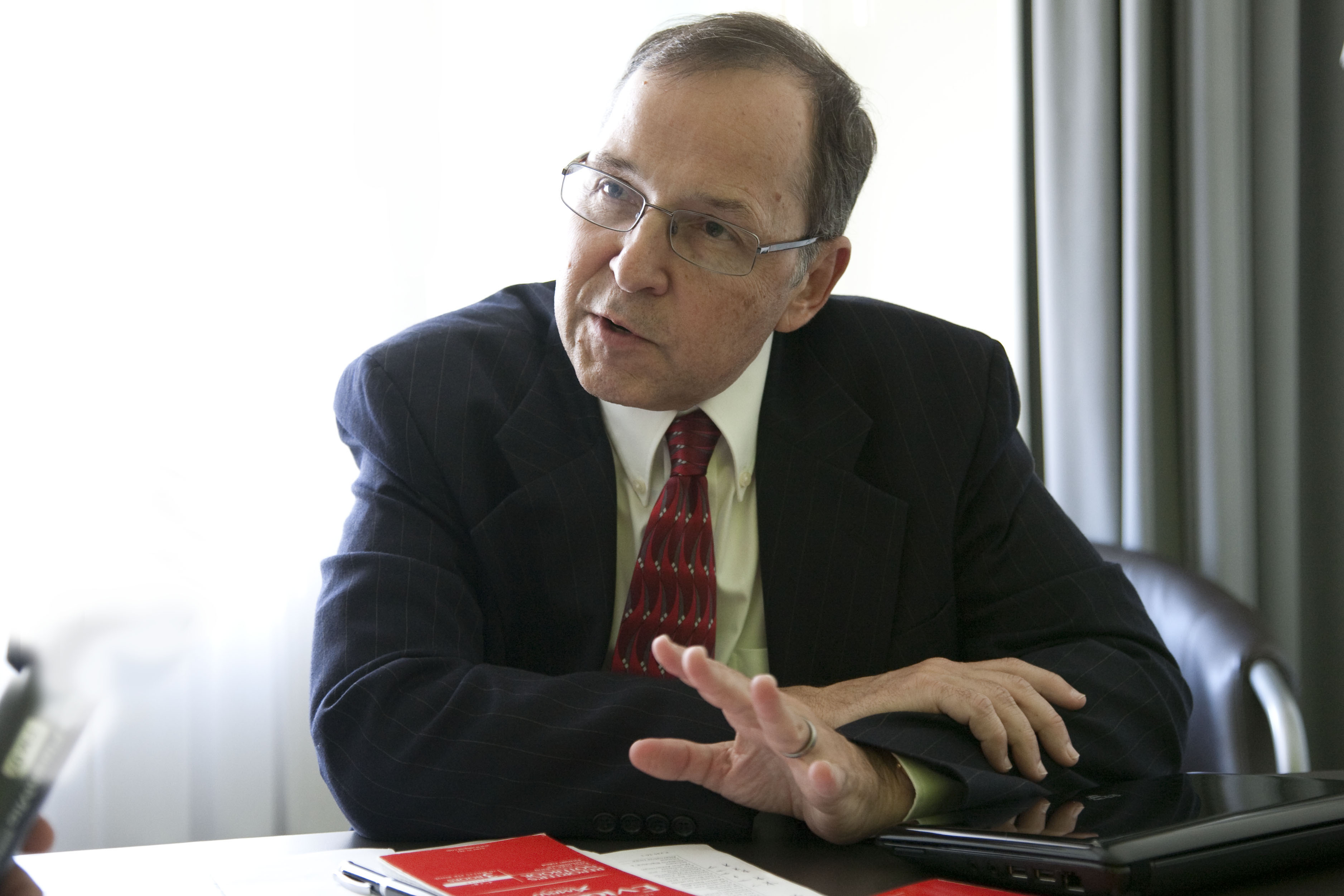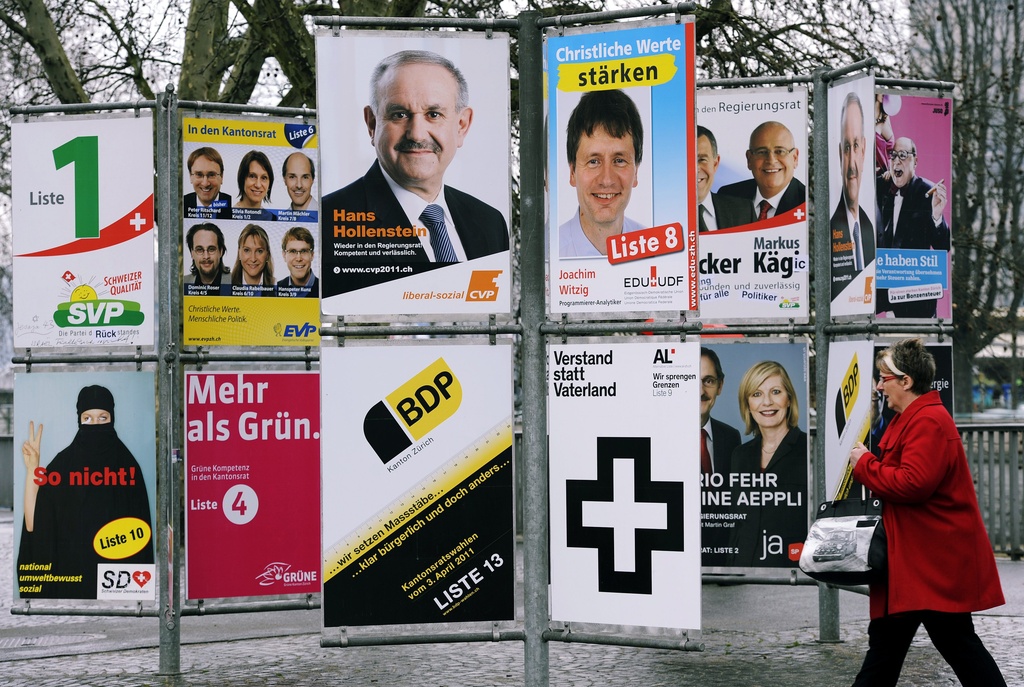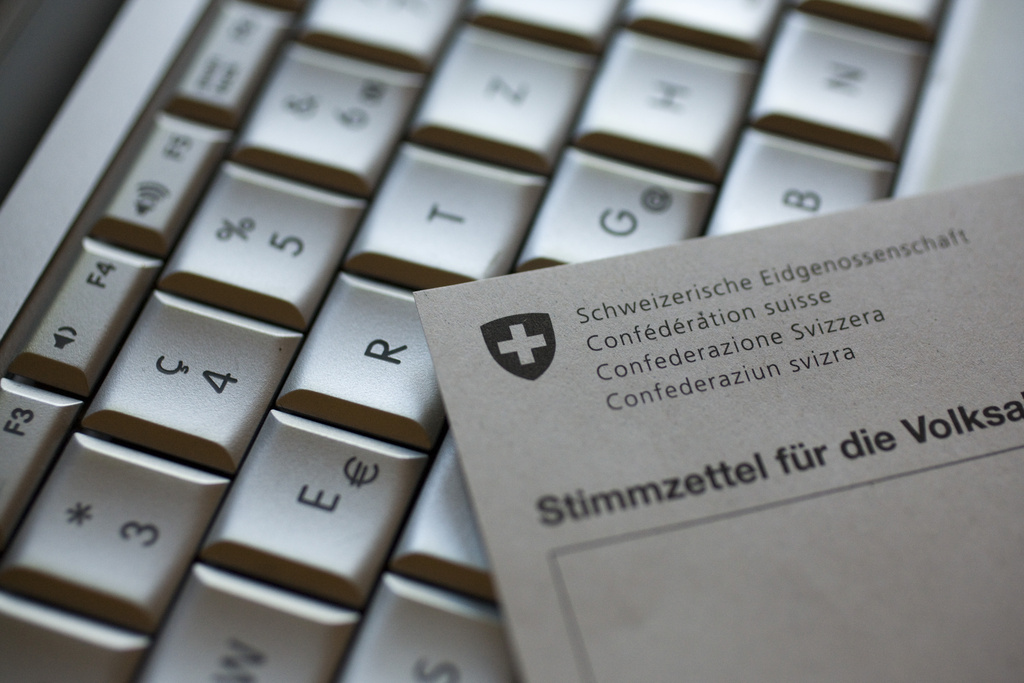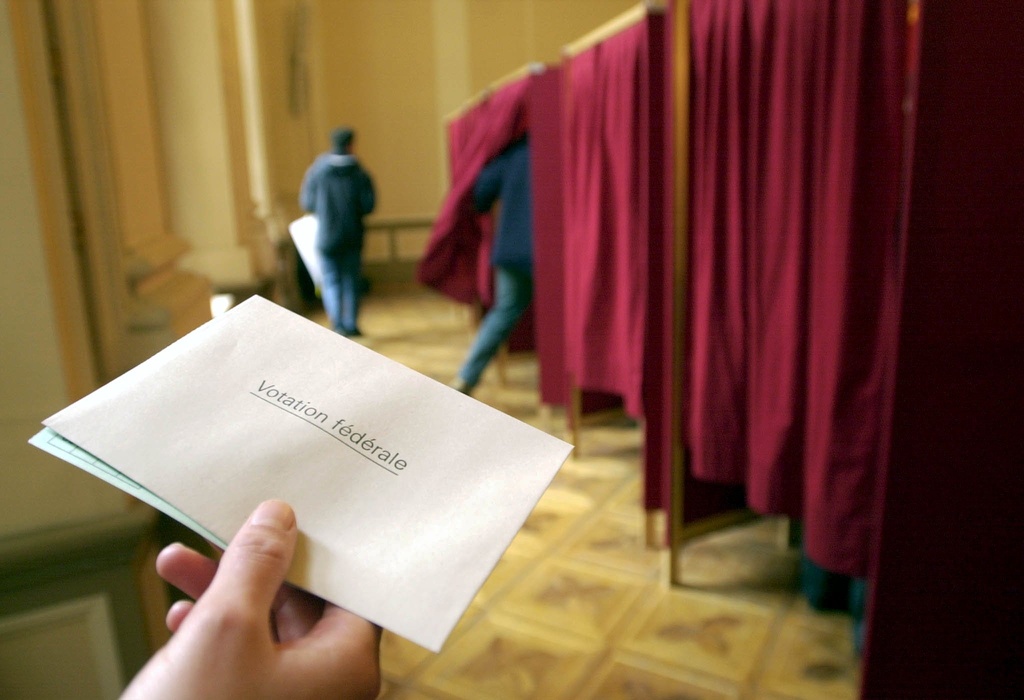Swiss democracy goes under the microscope

Switzerland’s parliamentary elections next weekend will be scrutinised by an assessment team of the Organization for Security and Co-operation in Europe (OSCE).
swissinfo.ch spoke to United States diplomat Peter Eicher, in charge of the observer team which will be paying special attention to e-voting as well as considering whether more transparency is needed concerning campaign financing.
On October 23, some Swiss abroad and citizens in four cantons will be able to vote via internet for the first time in parliamentary elections, an experience that will watched closely by the OSCE specialists.
They will hand in their report in a few months’ time, providing a series of recommendations for the Swiss government on how to improve the electoral process. But Eicher says he also hopes Switzerland’s election will provide positive examples for other countries.
swissinfo.ch: What points do you plan to examine during these elections?
Peter Eicher: First of all, we will make an overall assessment as we try to do in every country. So we will be looking at the legal framework, the election law, the election administration, the campaign, political parties and then other issues such as women’s rights, campaign financing. In other words a whole range of issues.
One point that is particularly interesting for us this time is internet voting for Swiss citizens abroad and in four cantons. This will be a first for [a parliamentary election in] Switzerland and it is something really new in general worldwide, so it will be interesting to see how it works here.
swissinfo.ch: Some Swiss abroad don’t have access to e-voting or receive their electoral documents too late to vote. Do you consider this a problem?
P.E.: We favour universal suffrage. So we feel it’s a very good practice for countries to find ways for their citizens abroad to vote. It’s one of the potential advantages of internet voting because it would allow more people to vote more easily.
On the other hand, the potential disadvantages are that you have to be very careful about security, make sure that the system can’t be hacked. You have to have a certain level of accountability and transparency in an election system as well. If any country were to conduct an internet test and it was to fail, this could set the process back rather than moving it forwards. What is good here is that the government has decided to explore internet voting in a slow, measured way with many tests and pilots.
swissinfo.ch: Four years ago, Switzerland was criticised for the lack of transparency surrounding the financing of the last federal election campaign and no progress has been made since.
P.E.: This will be one of the issues we will be looking at. The lack of transparency was criticised last time because one of the basic principles we have is that it is good for elections to be transparent, for people to understand how their systems work.
Money can be very influential in elections, so it’s good for voters to know where their candidates and parties are getting their money from. In the worst case scenario, where there is no transparency, you might find out that foreign organisations or even governments might be interfering in elections.
swissinfo.ch: Only half of Swiss voters cast a ballot. Do you consider that a concern?
P.E.: Elections are a participatory process. As observers, we are always happy when everybody turns out to vote. If people don’t turn out, it always makes us wonder. If Switzerland has one of the best democracies in the world, why are people not participating if they have the chance.
So we will be looking into this and trying to discover why. We might possibly come up with a recommendation on how to increase participation. Last time we recommended increased voter education especially for younger people and first-time voters. We know the government has been taking action on that and it might lead to an increase in voter participation.
swissinfo.ch: Your mission has been criticised by conservative politicians, who wonder why Switzerland’s electoral process should be assessed. Is there any justification for this?
P.E.: We were invited here by the Swiss government. Switzerland is also a member of the OSCE and is as such committed to inviting observers during elections.
We are not trying to dictate anything to Switzerland. We are simply observers who provide an assessment and make recommendations if necessary. It is something that is done in the new democracies as well as in the longer established ones. The OSCE sends a mission every two years to the United States for elections there for example.
We believe that as good as many elections are, there is probably no perfect election, that anybody might find a way to make things better and that perhaps we can make some recommendations for the Swiss government to consider.
We also hope to find good examples here to take and share with other countries. I would be very unhappy to hear that people don’t want us here because it should be seen as an opportunity to spread the good Swiss examples elsewhere and bring knowledge from other countries here.
Everyone for example would like to see internet voting succeed and be a strong system instead of being a system with problems of one kind or another. We have voting technology experts on our team and they might be able to make some recommendations to make Switzerland’s e-voting system better.
The OSCE has sent its Election Assessment Mission to Switzerland after being invited by the government. The mission began on October 10 and will end on the 28th.
An OSCE member, Switzerland is committed to asking the organisation to observe the parliamentary elections, which take place every four years.
The team led by Peter Eicher includes 11 specialists from the US, Britain, Germany, Greece, Poland, Russia and Canada.
The mission will meet federal and cantonal authorities, candidates, political parties, the judiciary, civil society as well as the media. However the experts will not be carrying out any systematic oversight on October 23, choosing to visit just a few polling stations on the day.
A final report is expected two months after the elections.

In compliance with the JTI standards
More: SWI swissinfo.ch certified by the Journalism Trust Initiative





You can find an overview of ongoing debates with our journalists here. Please join us!
If you want to start a conversation about a topic raised in this article or want to report factual errors, email us at english@swissinfo.ch.